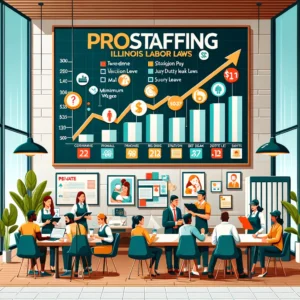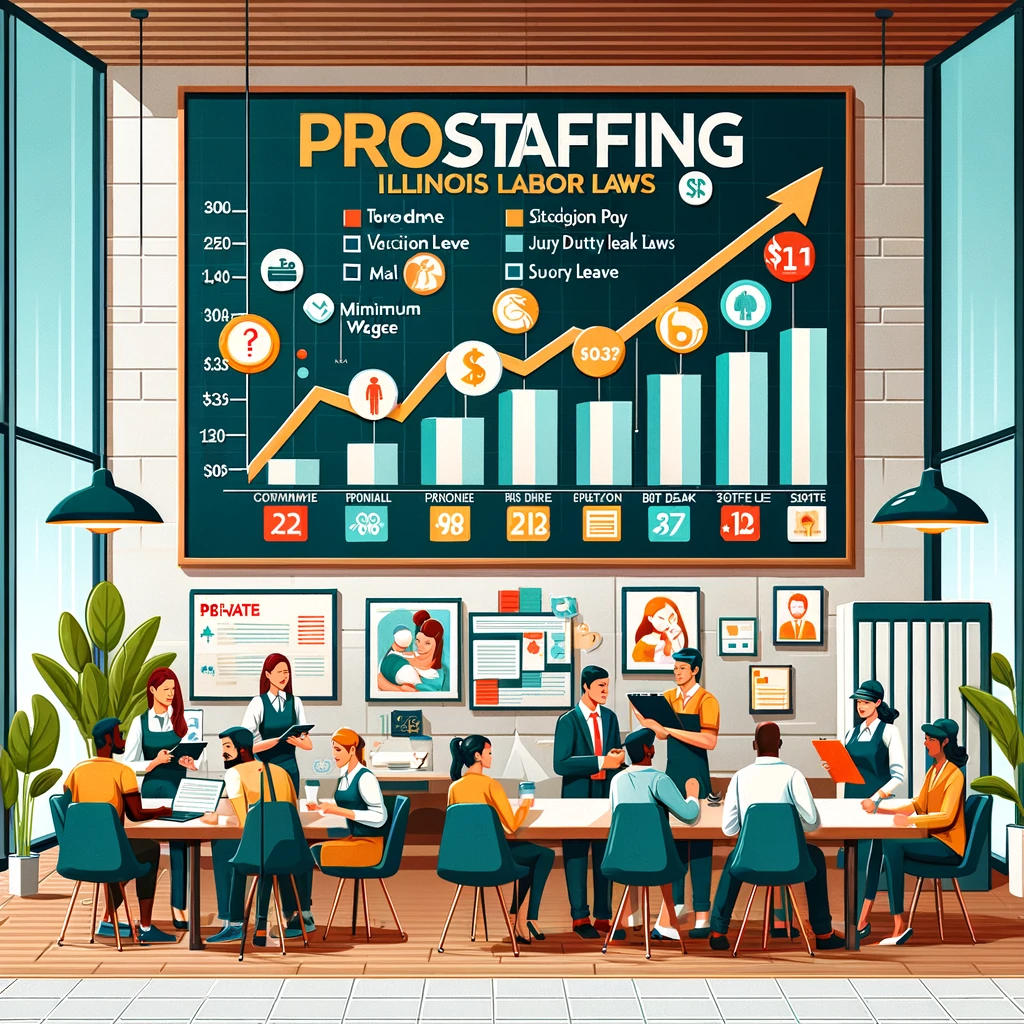Understanding Illinois Labor Laws: A Simplified Guide
Minimum Wage Law
The Illinois Minimum Wage Law prescribes a gradual increase in the minimum wage over several years. As of now, the minimum wage is set at $12.00 per hour, with future increases planned: $13.00 in 2023, $14.00 in 2024, and reaching $15.00 in 2025. For tipped employees, the base minimum wage is lower, recognizing that tips contribute to their earnings, with incremental increases also planned for these workers. Additionally, employers can pay a subminimum wage to workers with disabilities under specific conditions, provided they obtain a license from the Illinois Department of Labor.
Overtime Regulations
Illinois requires employers to pay overtime at a rate of one and a half times the regular rate of pay for hours worked beyond 40 in a single workweek. This aligns with the Fair Labor Standards Act (FLSA), ensuring employees are compensated for extended work hours. Exceptions exist for certain exempt positions.
One Day Rest in Seven
State law mandates employers to give employees at least one 24-hour period of rest in every calendar week, aligning with the principle of work-life balance. Exceptions and permits for continuous work are regulated, with specific criteria and limitations in place.
Prevailing Wage
In scenarios involving government contracts or projects, the prevailing wage law may require wages that exceed the state’s standard minimum. This ensures that workers on federal or state construction projects receive fair compensation reflective of the industry standards.
Meal and Break Periods
Employers must provide a meal period of at least 20 minutes for employees working 7½ continuous hours or more. The timing of these breaks is regulated to ensure they fall within reasonable periods during the work shift. Additional breaks may be required based on the length of the shift.
Nursing Mother Breaks
Specific provisions support nursing mothers, requiring employers to provide reasonable break times for expressing breast milk, with efforts to offer a private, non-bathroom space for this purpose. These requirements highlight the state’s commitment to accommodating the needs of working parents.
Leave Policies
Illinois does not mandate vacation leave but enforces any vacation policies or agreements employers choose to implement. Sick leave provisions require employers to allow the use of leave for medical appointments, illness, or injury, with additional bereavement leave under certain conditions. Jury duty and voting leave laws ensure employees can fulfill civic responsibilities without losing pay or facing retaliation.
Severance and Unemployment
No specific law mandates severance pay, leaving it to the discretion of the employer. However, unemployment benefits are structured to support individuals who are out of work under qualifying conditions, focusing on those actively seeking new employment and meeting earnings thresholds.
Child Labor, Discrimination, and Equal Pay
Illinois has stringent child labor laws that regulate working hours and conditions for minors. The state’s Human Rights Act and Equal Pay Act work to prevent discrimination and ensure equal compensation for substantially similar work, irrespective of gender, race, and other protected characteristics.
Workplace Safety
Compliance with the Occupational Safety and Health Act (OSHA) is mandatory, emphasizing the importance of maintaining safe working conditions to prevent accidents and health issues.
These detailed aspects of Illinois labor laws illustrate the state’s comprehensive approach to worker protection, balancing economic factors with the well-being and rights of employees. For both employers and employees, understanding and adhering to these laws are crucial for legal compliance and fostering a positive work environment.





